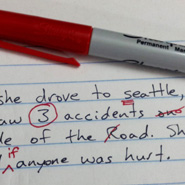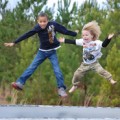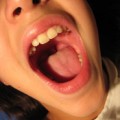This ‘Learn Music Faster’ series of posts highlights things my best students do that contributes towards their success. There are no secret formulae or magic tricks. Learning to play well still requires hard work, dedication and above all, practice. However, my students who do these things seem to improve quicker than the others.
Make Mistakes
There’s a great moment in the Simpsons where Homer tells Bart and Lisa “Kids, you tried your best and you failed miserably. The lesson is, never try.” We can all see that’s the wrong lesson, yet we all recognise that feeling.
Practice is about getting things right, isn’t it? About playing perfectly, eliminating mistakes. Any error is a sign of failure.
Wrong!
This is the worst possible approach to practice (and probably performance for that matter). Practice is all about mistakes. You have to push yourself beyond your current capabilities. And when you do, more than likely you will fail. You will make a mistake.
The important bit is what happens next. You will look at that mistake and try to figure out why you made it. Then you will try again. You might have fixed it. You might not and you’ll have to try something else. Try it slower. Change your hand position. Use a different chord voicing. Anything you can think of to make it work.
And eventually, it will work. But not before you’ve made some mistakes. Probably a lot of mistakes. Mistakes, and fixing them, are how you learn.
If you don’t do this you will always be playing in your comfort zone, practicing what you can already do. And the point of practice is to get better, by working on what you can’t do. Justin Sandercoe emphasises this point in his practice tips lesson.
Let’s take an example that makes this clearer. Imagine you want to be a figure skater. Unlikely I guess, but work with me here.
Obviously one of the most important things when performing a figure skating routine is that you should not fall over. That’s not good skating. But how about when you practice? Will you execute every move flawlessly even the first time you try? Of course not. You’re going to fall over. A lot. At the beginning you will spend more time on your backside than you will on your skates.
The point is, all this falling over is good for you. It’s what you’ve got to do to learn the skills to stay on your feet. You won’t learn to spin, twist, jump, turn and glide without falling over a lot. So that’s what you’ve got to do to make it as a figure skater.
Mistakes, and crucially, how we deal with them once we’ve made them, are the key to progress.
In writing this I’ve realised that there’s a dangerous assumption hidden in the old saying “Practice makes perfect.” People often equate practice with repetition – I know I’ve made this connection in the past. However, repetition alone will not make you better. If you repeat the same mistake over and over you will be training yourself to make that mistake every time.
True practice is a short period of repetition, followed by a little bit of thinking, reflection and analysis on how you could improve what you’ve just done. Then a little experimentation to see if any of these new ideas are successful. Then further repetition to embed these new ideas. Once you’ve done this you’ve come full circle and you can analyse and assess your new, hopefully improved, performance.
This cycle of repetition, reflection and correction is the key to effective practice. Repetition alone is not enough. Practice doesn’t make perfect, fixing your mistakes does.
The importance of mistakes is that they act as giant flashing neon signs showing you exactly where you need to analyse and adjust your playing.
I won’t pretend mistakes aren’t frustrating. They are. But if you can see them as the breadcrumbs guiding you towards improvement, they become a bit easier to bear.
So go pick up your instrument, make some mistakes, then fix them. You’ll be a better musician for it.
Previously on Learn Music Faster – Take responsibility for your own learning






Pingback: Making Mistakes - Taking myself too literally! - Matt Helm Guitar
Pingback: Learn Music Faster - Count In - Matt Helm Guitar